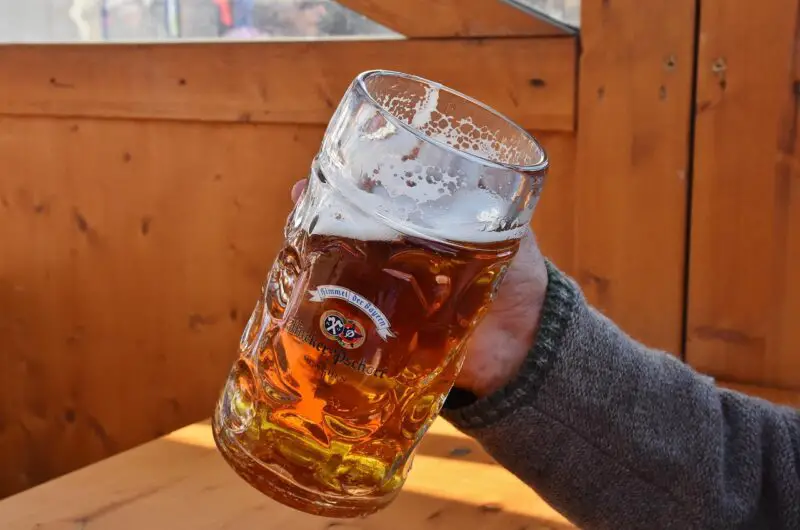The idea that beer can “clean your system” is a notion that floats around in casual conversations, often tied to the broader appeal of alcohol as a social lubricant or even a health tonic in some cultural contexts. But what does it mean to “clean your system,” and does beer actually have any detoxifying properties? In this article, we’ll unpack the myth, dive into the science of beer’s effects on the body, and explore whether there’s any truth to the claim. Spoiler alert: the reality is more complex than a simple yes or no.
What Does “Clean Your System” Mean?
The phrase “clean your system” is vague but typically refers to the idea of detoxifying the body—removing harmful substances, improving organ function, or resetting metabolic processes. Popular culture often associates detox with flushing out toxins from the liver, kidneys, or digestive system, whether through diet, fasting, or specific beverages. In the case of beer, the claim likely stems from its diuretic properties, historical medicinal uses, or the general feel-good vibe of a cold pint. But to evaluate this, we need to break down beer’s components, its physiological effects, and how the body actually handles detoxification.
Beer: What’s in It?
Beer is one of the oldest beverages in human history, brewed from water, malted barley, hops, and yeast, with occasional additions like fruits or spices. Its primary active ingredient is ethanol, the alcohol that gives beer its buzz. A standard beer (about 12 ounces with 5% alcohol by volume) contains roughly 14 grams of ethanol, alongside water, carbohydrates, and trace amounts of vitamins, minerals, and antioxidants from its ingredients.
Key components relevant to the “clean your system” claim include:
Water: Beer is about 90-95% water, which contributes to hydration and urine production.
Ethanol: The alcohol in beer affects the liver, kidneys, and brain, with both short- and long-term consequences.
Hops: These contain antioxidants like xanthohumol, which have been studied for potential health benefits.
B vitamins: Barley and yeast provide small amounts of B vitamins, which support metabolism.
Polyphenols: Derived from barley and hops, these compounds may have antioxidant properties.
With these components in mind, let’s explore how beer interacts with the body’s detoxification systems, particularly the liver and kidneys, and whether it can truly “clean” anything.
The Body’s Detoxification Systems
The human body is a marvel of self-regulation, equipped with sophisticated mechanisms to eliminate toxins. The liver, kidneys, lungs, and skin all play roles, but the liver and kidneys are the heavyweights when it comes to detoxification.
Liver: The liver processes toxins, including alcohol, through enzymes like alcohol dehydrogenase (ADH) and aldehyde dehydrogenase (ALDH). These convert ethanol into acetaldehyde (a toxic byproduct) and then into acetate, which is broken down into water and carbon dioxide for elimination. The liver also filters blood, neutralizes harmful substances, and produces bile to aid digestion.
Kidneys: These organs filter blood to remove waste products, excess water, and electrolytes, producing urine. Alcohol’s diuretic effect increases urine output, which some might interpret as “flushing” the system.
Other Systems: The lungs expel volatile compounds, and the skin releases small amounts of waste through sweat, but these are minor compared to the liver and kidneys.
The idea of “cleaning your system” often hinges on enhancing these natural processes. So, does beer help or hinder them?
Beer as a Diuretic: Flushing or Dehydrating?
One of the most immediate effects of drinking beer is its diuretic property, meaning it increases urine production. Ethanol inhibits the release of antidiuretic hormone (ADH) from the pituitary gland, which normally signals the kidneys to reabsorb water. With less ADH, the kidneys excrete more water, leading to more frequent urination.
This diuretic effect might be mistaken for “cleaning” because it feels like the body is flushing something out. In the short term, increased urine output can help eliminate water-soluble waste products. However, this comes at a cost. Alcohol-induced diuresis can lead to dehydration, especially if you’re drinking beer without balancing it with water. Dehydration strains the kidneys, reducing their efficiency and potentially leading to electrolyte imbalances.
Studies suggest that moderate alcohol consumption (e.g., one or two beers) doesn’t cause significant dehydration in healthy individuals, especially if they’re well-hydrated beforehand. However, excessive drinking—say, a night of heavy beer consumption—can dehydrate the body, counteracting any perceived “cleansing” benefit. So, while beer might make you pee more, it’s not necessarily helping your kidneys do their job better.
Beer and the Liver: Helper or Hindrance?
The liver is ground zero for alcohol metabolism, and it’s also the organ most often associated with the “clean your system” claim. Some argue that small amounts of alcohol could stimulate liver function, a concept rooted in historical practices where beer was used medicinally. For example, in medieval Europe, beer was considered safer than water and was sometimes prescribed for digestive issues.
However, modern science paints a different picture. Ethanol is a toxin, and the liver prioritizes metabolizing it over other tasks. When you drink beer, the liver diverts resources to process alcohol, temporarily pausing other detoxification duties. For occasional, moderate drinkers, this isn’t a major issue—the liver bounces back quickly. But chronic or heavy drinking can overwhelm the liver, leading to fatty liver, inflammation (alcoholic hepatitis), or even cirrhosis, where scar tissue impairs liver function.
On the flip side, some components in beer, like hops and polyphenols, have been studied for potential liver-protective effects. For instance, xanthohumol in hops has shown promise in animal studies for reducing liver inflammation and oxidative stress. However, these compounds are present in tiny amounts in beer, and you’d need to drink impractical quantities to see any benefit—far more than is healthy. Plus, the negative effects of ethanol outweigh these minor positives in most cases.
In short, beer doesn’t “clean” the liver. At best, moderate consumption doesn’t harm it significantly in healthy individuals. At worst, excessive drinking damages the liver, impairing its ability to detoxify the body.
Antioxidants in Beer: A Detox Boost?
Beer contains antioxidants, particularly polyphenols from barley and hops, which can neutralize free radicals—unstable molecules that damage cells. Free radicals contribute to aging and diseases like cancer, so antioxidants are often linked to “detox” in popular rhetoric. Some studies suggest that moderate beer consumption (one drink per day for women, two for men) may provide cardiovascular benefits, partly due to these antioxidants.
However, the antioxidant content in beer is relatively low compared to foods like berries, nuts, or green tea. You’d get more polyphenols from a handful of blueberries than a pint of beer. Moreover, alcohol itself generates oxidative stress in the body, particularly during metabolism when acetaldehyde forms. This means that any antioxidant benefit from beer is likely offset by the oxidative damage caused by alcohol, especially with heavy drinking.
Historical and Cultural Context
The notion that beer cleans the system may also stem from its historical role. In ancient times, beer was often safer to drink than water, which could be contaminated with pathogens. In this sense, beer indirectly “cleaned” the system by preventing waterborne illnesses. Some traditional medicines also used beer to stimulate digestion or as a diuretic, which might have contributed to the myth.
Culturally, beer is sometimes seen as a digestive aid. In Germany, for example, a “digestive beer” after a heavy meal is a common practice, based on the idea that it helps settle the stomach. While beer’s carbonation and mild bitterness from hops might stimulate digestion slightly, there’s no evidence it cleanses the digestive tract in any meaningful way.
The Risks of Over-Reliance on Beer
If you’re banking on beer to detox your body, you’re likely doing more harm than good. Chronic alcohol consumption is linked to numerous health issues, including:
Liver Damage: As mentioned, heavy drinking can lead to fatty liver, hepatitis, or cirrhosis.
Kidney Strain: Chronic dehydration from alcohol’s diuretic effect can impair kidney function over time.
Gut Health: Alcohol can disrupt the gut microbiome, leading to digestive issues.
Nutrient Depletion: Alcohol can deplete B vitamins and other nutrients, counteracting any small amounts provided by beer.
Moreover, the idea of “cleaning” the system through beer ignores the body’s natural detox processes. The liver and kidneys don’t need external help to function—they’re designed to handle toxins efficiently, provided you support them with a balanced diet, hydration, and moderate lifestyle choices.
What Actually Cleans Your System?
If you’re looking to support your body’s detoxification, beer isn’t the answer. Here are evidence-based ways to enhance your body’s natural detox systems:
Hydration: Drink plenty of water to support kidney function and urine production.
Balanced Diet: Eat fiber-rich foods (fruits, vegetables, whole grains) to support digestion and liver health. Foods high in antioxidants, like berries and leafy greens, are far more effective than beer.
Exercise: Physical activity promotes circulation, sweating, and overall metabolic health.
Limit Alcohol: Moderate alcohol consumption (if any) prevents overloading the liver.
Sleep: Adequate rest allows the body to repair and detoxify naturally.
The Verdict: Does Beer Clean Your System?
In a word, no. Beer does not clean your system in any meaningful way. Its diuretic effect might give the illusion of flushing out toxins, but this is superficial and can lead to dehydration. The liver, the body’s primary detox organ, is burdened by alcohol, not helped by it. While beer contains trace amounts of beneficial compounds like antioxidants, their impact is minimal compared to the potential harm of excessive alcohol consumption.
That said, moderate beer consumption—within the guidelines of one drink per day for women and two for men—can be part of a balanced lifestyle for healthy individuals. It may even offer minor cardiovascular benefits, though these are better obtained from other sources like diet and exercise. But as a detox tool, beer falls flat.
The myth likely persists because of beer’s historical role, cultural associations, and the feel-good effect of moderate drinking. However, if you’re serious about supporting your body’s detoxification, skip the pint and focus on hydration, nutrition, and healthy habits. Your liver and kidneys will thank you.
Final Thoughts
The idea that beer cleans your system is a mix of folklore, wishful thinking, and misinterpretation of its physiological effects. While a cold beer can be a delightful part of life, it’s not a health elixir. Understanding how your body actually detoxifies can help you make informed choices, whether you’re enjoying a brew or aiming to feel your best. So, next time someone claims beer is “cleansing,” you can raise a glass to good conversation—but don’t expect it to clean anything other than your palate.

















